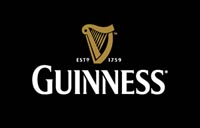Arthur Guinness Son & Co.
 |
|
| Privately held company | |
| Industry | Alcoholic beverages |
| Founded | St. James' Gate, Dublin, Ireland (1759) |
| Founder | Arthur Guinness |
| Headquarters | Dublin, Ireland |
|
Area served
|
Worldwide |
| Products | Guinness Draught |
|
Production output
|
82.9 million hectolitres 50.7 million barrels |
| Owner | Diageo |
| Parent | Diageo (1997–present) |
| Website | www.guinnessstorehouse.com |
St. James' Gate Brewery (Irish: Grúdlann Gheata Naomh Séamuis) is a brewery founded in 1759 in Dublin, Ireland, by Arthur Guinness. The company is now a part of Diageo, a British company formed from the merger of Guinness and Grand Metropolitan in 1997. The main product of the brewery is Guinness Draught.
Originally leased in 1759 to Arthur Guinness at IR£45 (Irish pounds) per year for 9,000 years, St. James' Gate has been the home of Guinness ever since. It became the largest brewery in Ireland in 1838, and the largest in the world by 1886, with an annual output of 1.2 million barrels. Although no longer the largest brewery in the world, it is still the largest brewer of stout in the world. The company has since bought out the originally leased property, and during the 19th and early 20th centuries the brewery owned most of the buildings in the surrounding area, including many streets of housing for brewery employees, and offices associated with the brewery. The brewery also made all of its own power using its own power plant.
There is an attached exhibition on the 250-year-old history of Guinness, called the Guinness Storehouse.
Arthur Guinness started brewing ales in Leixlip, County Kildare, and then from 1759 at the St. James's Gate Brewery in Dublin. On 31 December he signed a 9,000-year lease at £45 per annum for the unused brewery. However, the lease is no longer in effect because the brewery property has been bought out when it expanded beyond the original 4-acre site.
Ten years after establishment, on 19 May 1769 Guinness exported his beer (he had ceased ale brewing by then) for the first time, when six and a half barrels were shipped to England. The business expanded by adopting steam power and further exporting to the English market. On the death of Benjamin Guinness in 1868 the business was worth over £1 million, and the brewery site had grown from about 1 acre to over 64 acres. In 1886 his son Edward sold 65 percent of the business by a public offering on the for £6 million.
...
Wikipedia
